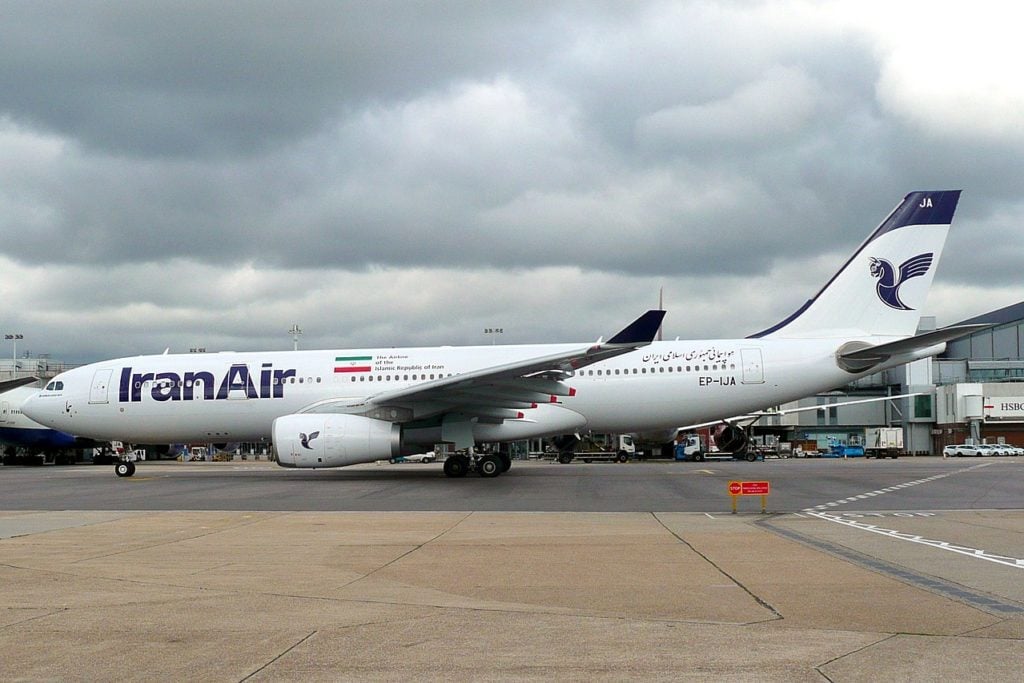How Trump’s Iran Nuclear Deal Decision Could Affect Boeing and Airbus
Share

APEX Insight: Boeing and Airbus are likely to forfeit aircraft deals worth billions of dollars because of the United States’ decision to withdraw from a nuclear accord with Iran.
United States President Donald Trump’s decision to withdraw from the nuclear accord with Iran is putting aircraft deals, worth a total of nearly $40 billion dollars, at risk of collapse.
On May 9, against the advice of European allies, Trump announced that the US intends to withdraw from the Obama-era agreement with Iran. He described it as “decaying and rotten,” adding that the deal was “an embarrassment.”
In 2015, Iran agreed a long-term deal with the P5+1 group of world powers – the US, UK, France, Germany, China and Russia – and the European Union. Under the accord, Iran agreed to limit its nuclear program and allow international inspections in return for the lifting of nuclear-related economic sanctions by western countries.
The lifted embargo presented an opportunity for Iran’s airlines, which are desperately in need of new aircraft to replace aging fleets, to place orders with aircraft manufacturers like Airbus and Boeing. According to Bloomberg, the aircraft orders had the potential to build Tehran into an aviation hub that “could better compete with Dubai and Qatar.”
Closing Doors
In 2016, Airbus signed a deal to supply Iran Air with 100 aircraft, including Airbus A320s, A330s and A350s, worth around $19 billion at list prices. Airbus has made three deliveries so far, while its ATR venture has shipped eight turboprops, the first new passenger aircraft acquired by the carrier in 23 years.
Boeing later struck a deal with the country’s state-owned carrier for 80 aircraft, including Boeing 737s and 777s, worth $17 billion at list prices. The company also inked a separate 30-aircraft deal with Iran Aseman Airlines, worth up to $3 billion.
However, neither deal looks likely to happen. The US Treasury said economic sanctions won’t be imposed immediately, but will instead be subject to 90-day and 180-day wind-down periods. This will affect industries including Iran’s oil exports and aircraft imports.
“The Boeing and Airbus licenses will be revoked,” Treasury Secretary Steven Mnuchin said during a press conference on Tuesday. The “These sanctions do impact all of the major industries,” he added. “These are very, very strong sanctions; they worked last time. That’s why Iran came to the table.”
Both companies’ deals are dependent on US export licenses because of the use of American-manufactured components in the aircraft. Although Airbus is European, 10% of the components and labor used to build its aircraft originate in the US.
“We did not consider any possibility of such exit from the deal and it was not mentioned in the contracts,” – Fakhriyeh-Kashan, Iranian government
“During the talks with Airbus and Boeing we did not consider any possibility of such exit from the deal and it was not mentioned in the contracts,” said Ashgar Fakhriyeh-Kashan, Iran’s minister of Roads and Urban Development, when speaking to Fars, an Iranian news agency.
Next Steps
Despite the loss of business, Airbus appears sanguine about its future. “Our [aircraft order] backlog stands at more than 7,100 aircraft, this translates into some nine years of production at current rates,” a spokesperson for Airbus said. “We’re carefully analyzing the announcement and will be evaluating next steps consistent with our internal policies and in full compliance with sanctions and export control regulations. This will take some time.”
“We’ll continue to follow the US government’s lead,” Gordon Johndroe, Boeing
Gordon Johndroe, Boeing’s vice-president of Government Operations Communications, said in a statement: “We will consult with the US Government on the next steps. As we have throughout this process, we’ll continue to follow the US government’s lead.”
Boeing has already been preparing for the scenario. Last month, CEO Dennis Muilenburg told investors that it pushed back its delivery date for the first Boeing 777s that Iran Air was scheduled to receive later this year. He said the possibility of the Iran Air order being canceled would not pose a problem because Boeing’s production plans no longer rely on those sales.
According to analysts, the impact on Boeing will be modest because the company already has a substantial backlog of orders for its 737s. Company shares fell by just 0.6% after the announcement.


